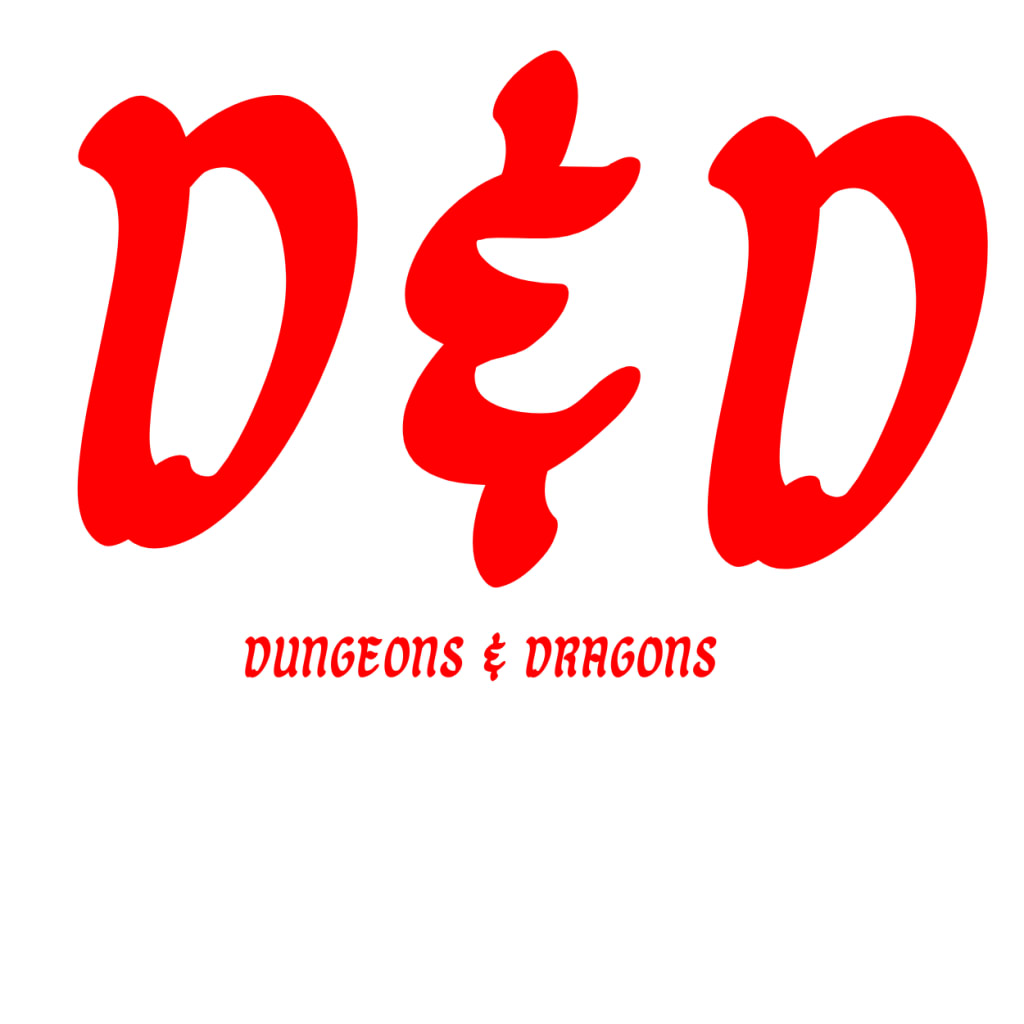
Hello, my name is Robert I'm 17 and into unique things as you can see.
I first learned about D&D through stranger Things. In the show, this was a game they tended to play throughout the series so I decided to give my take on Dungeons and Dragons.
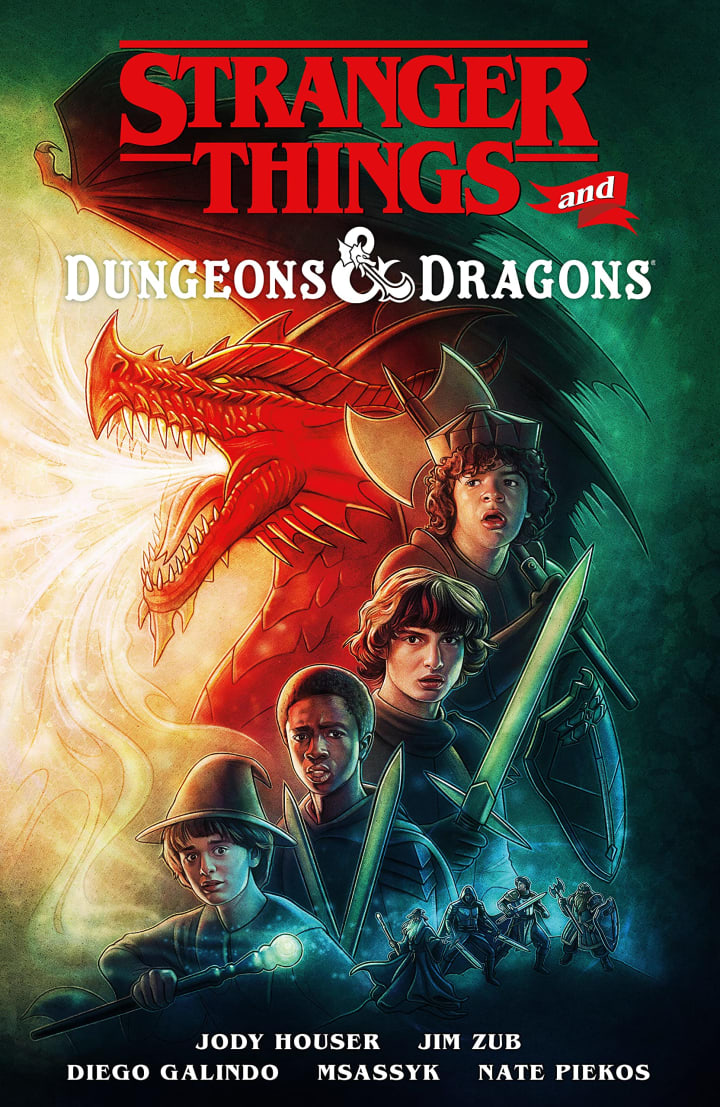
Dungeons and Dragons (D&D) is a fantasy role-playing game where you get to roll dice, learn spells, kill monsters and save the day. Say goodbye to your boring day job, because this will be the most exciting job you'll have in life. And with all those dazzling weapons, magical powers, and impressive skills, you'll maybe just become a hero everyone looks up to maybe. The game has been around since 1974 when it was released by Gary Gygax and Dave Arneson as a way for them to play out their own stories with their friends. It was later published by TSR Inc., which grew into one of the biggest tabletop roleplaying game companies in history. Players can choose from several races, classes, and backgrounds, which help determine their character's abilities and skills. The player then creates their character's personality and history by rolling dice to determine these characteristics randomly. A Dungeon Master (DM) takes on the role of narrator, referee, and storyteller who describes the landscape for the players as they explore dungeons, cities, forests, and other environments. The DM also determines how characters react according to their personalities and skills. Each player typically controls one character whose actions are determined by dice rolls or by choosing options from lists provided by the DM. The game is played in a session that typically lasts between two to four hours (depending on the complexity of the scenario) it can be played with multiple people running both sides of the adventure.
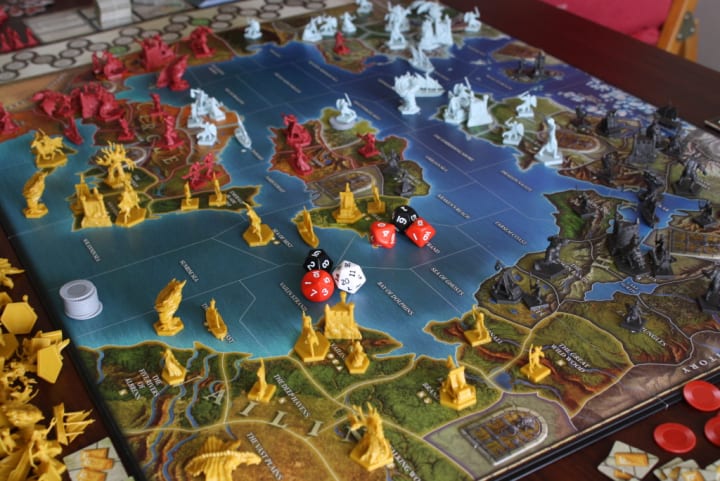
Your icon has capacities, similar to strength and intelligence, that are used to overcome challenges and master adversaries. You also have chops like covert and calisthenics that allow your icon to skulk past adversaries or jump over obstacles without being seen or caught by them. There are numerous different types of brutes in D&D brownies, dwarves, leprechauns, and dragons are just many exemplifications. Each type has different strengths and sins so players need to know what they are over against before they enter a fight! Each adventure is unique but utmost adventures follow an analogous pattern there will be an opening scene where some kind of problem occurs that requires working; there will also be some kind of briefing where everyone learns about this problem; after this, there will be some traveling. The game's combat system has some parallels to atomic wargaming, while its character classes are analogous to those set up in traditional part-playing games like Rune Quest( 1978). The stylish part about Dungeons & Dragons is that no two games are likewise. Every time we play, we come up with new adventures for our characters to go on and new adversaries to battle. And each time we play, we learn new effects about our characters and how they reply in different situations. In addition to your character’s name( Regdar, maybe) and race( human, for example), your character is most fluently linked by his or her class. A class is a kind of like a profession or vocation. It determines what part the character plays in the adventuring party. In this book, we present four of the most popular D&D classes for your use. further can be set up in the D&D Player's Handbook. The four introductory classes are a fighter, Rouges, Sorcerers , and Celeries here's a quick overview of each class
fighters: These characters are warriors with exceptional combat capabilities and weapon skills. Nobody kills monsters and stands at the front of an adventuring party as well as the fighter.
Rogues: Members of this class rely on tricks, cunning, and stealth to get through a dungeon and save the day. Rogues are great at getting past locked doors, scouting, spying, and attacking from the shadows.
Sorcerers: These are spellcasters, calling on powerful magic spells to fight monsters and protect their teammates. Sorcerers need to stay out of direct combat, but the power they bring to the adventure makes them worthy members of any party.
Clerics: These characters focus on the might of divine magic to cast healing and protective spells. A good second-line warrior as well, a cleric might be one of the most versatile members of an adventuring party.
Key Stats for your character
Initiative modifier: This modifier is used to determine who goes first in a combat round.
Speed: This value shows how far your character can move (measured in feet) in a round.
Attack and damage modifiers: These numbers are associated with your character’s weapons of choice, show what you must roll to attack opponents, and how much damage your character does if the attack succeeds.
Armor Class (or AC): This value is what opponents need to roll to hit your character during combat.
Hit points (or hp): This number defines how much damage your character can withstand before being defeated in combat. When your character runs out of hit points, he or she is defeated.
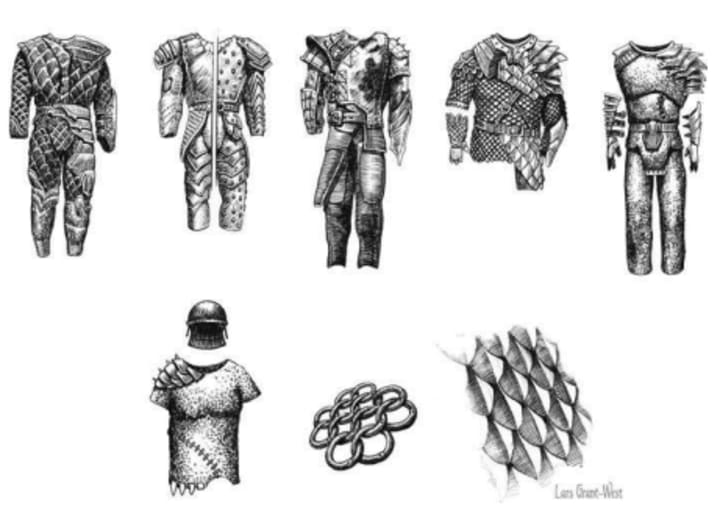
You get tons of different races to choose from and each has there upside and downside.
Humans are the same in the real world just more heroic, stronger, daring, and better looking. Play a human character if you want to have a lot of maneuverability for your character as he or she advances in level. Although humans don’t get any special abilities or statistical adjustments, they do gain extra skill points.
Dwarves are very short and extremely broad they excel at warfare, mining, and construction. Play a dwarf character if you want to focus on combat. Dwarves also have special abilities that favor underground and dungeon adventuring, such as the ability to see in the dark.
Elves adventurers love freedom and variety, which makes them lean toward the gentler aspects of chaos, usually neutral or good. For elves, the call to adventure comes from an inborn wanderlust, though they can become focused and relentless when a particular quest catches their interest. Play an elf character if you want to focus on magic or ranged combat. Elves have special abilities that make them indispensable for wilderness adventuring.
Halflings well it's in the name but they're half the size of humans. Halflings are nomads, wanderers with no homelands to call their own. Clever and capable, cunning and resourceful, halflings constantly seek ways to avoid boredom and complacency. Play a halfling character if you want to focus on stealth and skill use. Halflings have special abilities that let them excel at avoiding danger.
Dungeons and Dragons are just one of those games that let your imagination run wild when playing with some friends or just by yourself. Dungeons and dragons are inviting you to use your imagination unlike most video games today. In dungeons and dragons, there's no hand-holding, no perfect path to follow, you figure things out on the way so you should always expect surprises.
Remember your character is a different person from yourself and that's my take on D&D.
About the Creator
RJ
I'm into many things and love writing about them, so I hope to make more takes on other things that I find interesting.



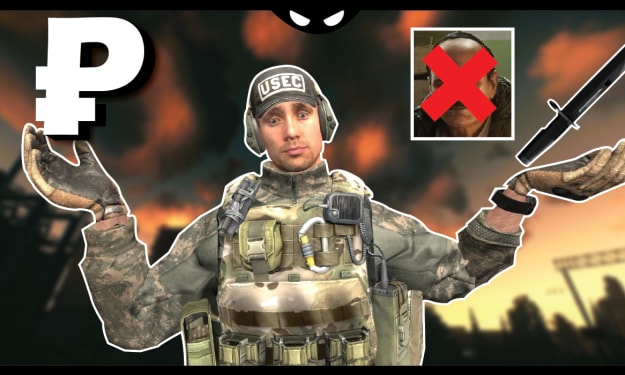


Comments (1)
Robert, you need to proofread better. Rouge is for cheeks and celerie is a vegetable. Double check your word choices before you hit Submit, spellcheck is just not trustworthy, it will absolutely betray you. Good short piece, though. Nice work.